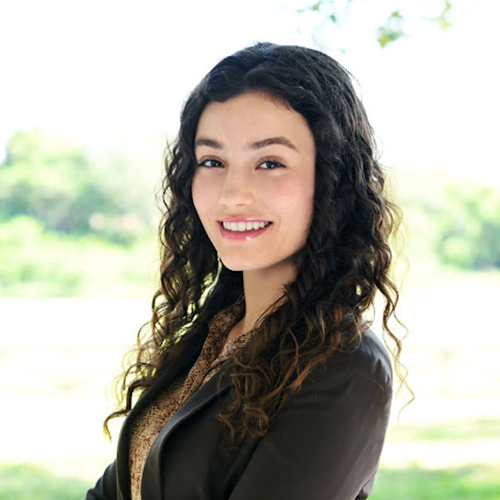
Sofia Rebull is finishing her sophomore year at Miami University and is majoring in Biology with a Pre-Medical Co-Major. Sofia is from Miami, Florida and identifies as a proud Cuban-American. In terms of involvement, she serves on the student advisory board for the Mallory-Wilson Center and is a Louis Stokes Alliance for Minority Participation (LSAMP) scholar. She will also serve as the incoming president of the Society for Advancement of Chicanos/Native Americans in STEM (SACNAS) and the incoming Communications Liaison for the Minority Association for Pre-Health Students (MAPS).
What research lab are you involved in and why?
I joined Dr. Katia Del Rio-Tsonis’ Eye Regeneration Lab during the fall of my sophomore year. I work as an undergraduate researcher under the mentorship of Dr. Del Rio-Tsonis and Jared Tangeman, a PhD student. Our lab performs research within the field of developmental biology and we hope to better understand the regenerative properties within the eye of our model organisms, the Iberian Ribbed newt (Pleurodeles waltl) and chicken (Gallus gallus domesticus). I was drawn to this research because our findings can be applied to diseases of the human eye, which often culminate in irreversible blindness since humans cannot regenerate their lens or retina. As a pre-medical student, I felt that this research influences the healthcare field, which is relevant to my career goals.
Why is diversity important in a research setting?
Being raised in a multicultural city, Miami, Florida, has provided me with successful examples of diverse leadership and taught me to embrace my Cuban identity. As a minority in the research field, I was very inspired to join our lab because it is headed by a strong, Latina, Dr. Del Rio-Tsonis. I am grateful for the culturally sensitive mentorship that I receive from Dr. Del Rio-Tsonis, who makes diversity a pillar of her research group. The array of unique individuals involved in the lab has led me to witness how diversity can promote creativity and innovation. This inclusive research environment and Dr. Del Rio-Tsonis’ role modeling has helped me realize that scientific discovery is accessible to underrepresented minorities like myself.
How has your involvement with research influenced your healthcare career goals?
In the lab, our patients are the newts and chick embryos. Although I am not working directly with humans, our research is important for developing treatments for eye diseases in people. Joining a research lab has taught me that there is more than one way to help people with medicine, apart from becoming a doctor. Now, I am interested in pursuing higher education to become a physician-scientist because it adds another level to treating patients by discovering alternative treatments. When approaching human health as a physician-scientist, I can use these animal models as an avenue to explore diseases because of the perspective these organisms provide on development. This being said, throughout the next two years of my time at Miami, there is still more exploration and learning to be done. Still, performing research has ingrained the endless possibilities for serving people in healthcare which will impact my career path in many positive ways.
What are your plans for the future involving research?
This summer, I will be staying in Oxford to continue my independent research at the Eye Regeneration Lab. I was selected as a “Choose Development!” Fellow by the Society of Developmental Biology (SDB), who will be funding my ten-week program for two consecutive summers at Miami. I look forward to expanding upon my current research project and making significant contributions to developmental biology that will advance my research career. I also plan to take advantage of the networking events organized by SDB in order to discover new research opportunities and career paths. In terms of the far future, I hope that I will continue to grow as a researcher and be able to serve diverse communities that are underserved.